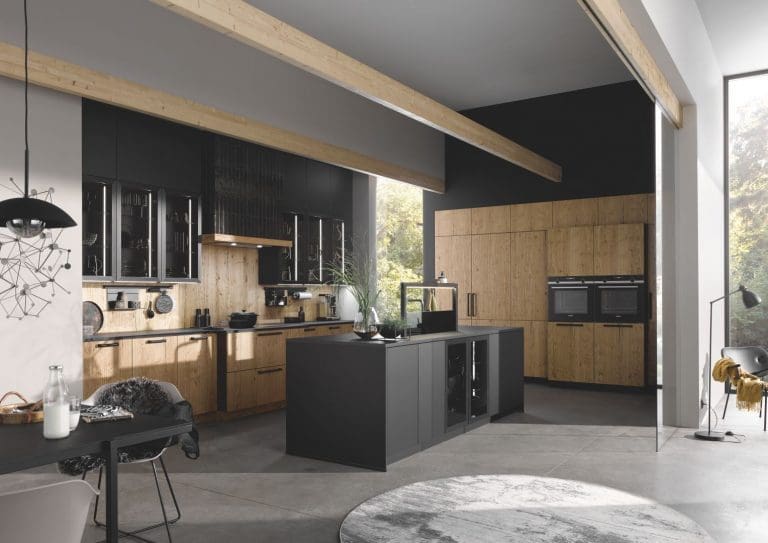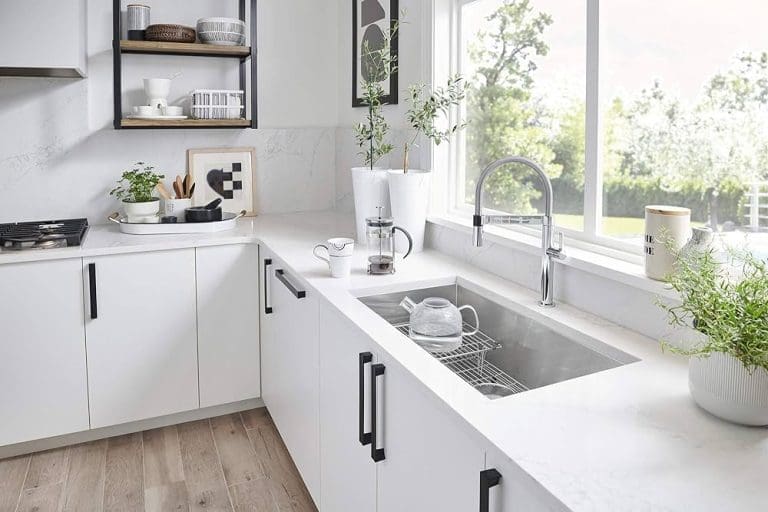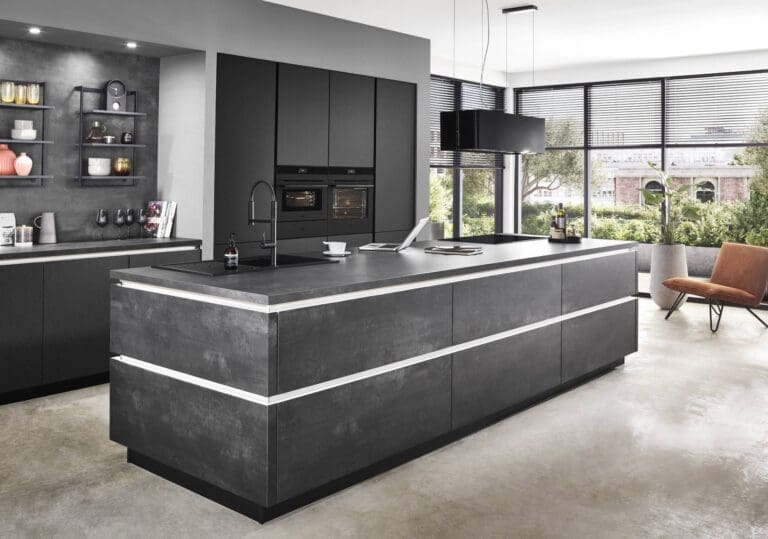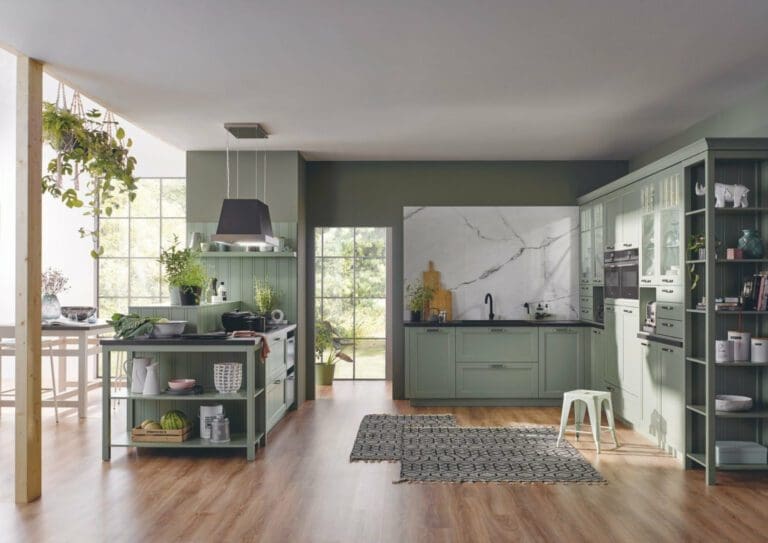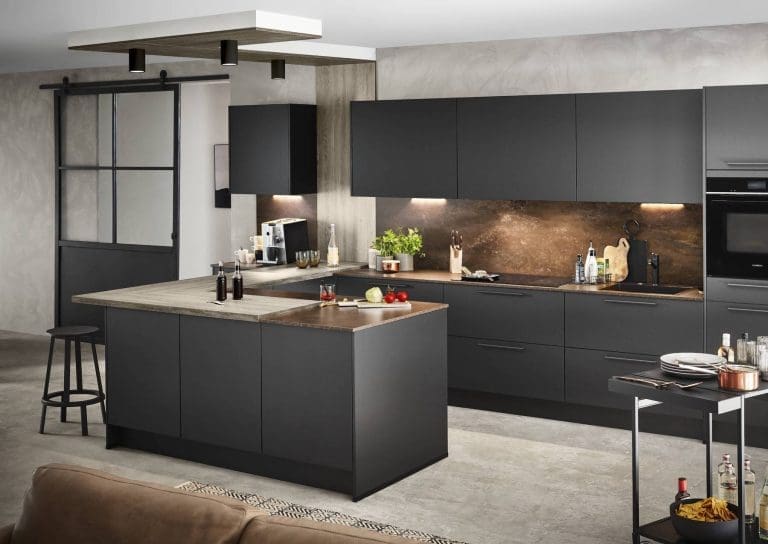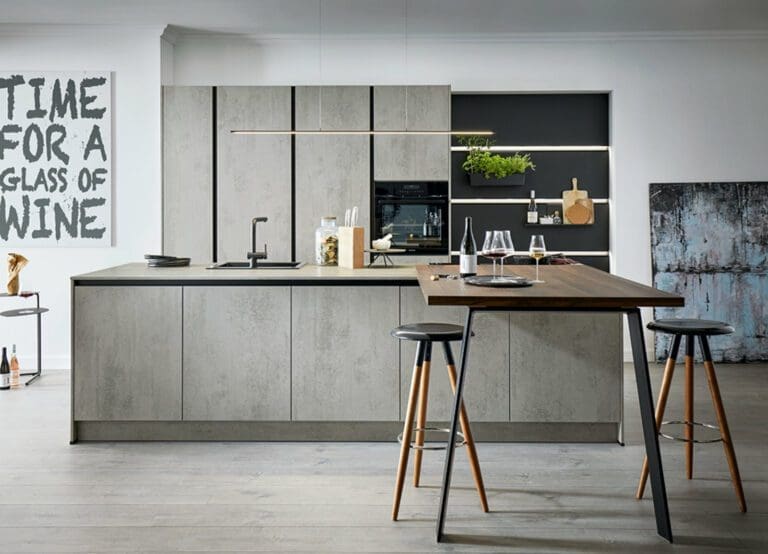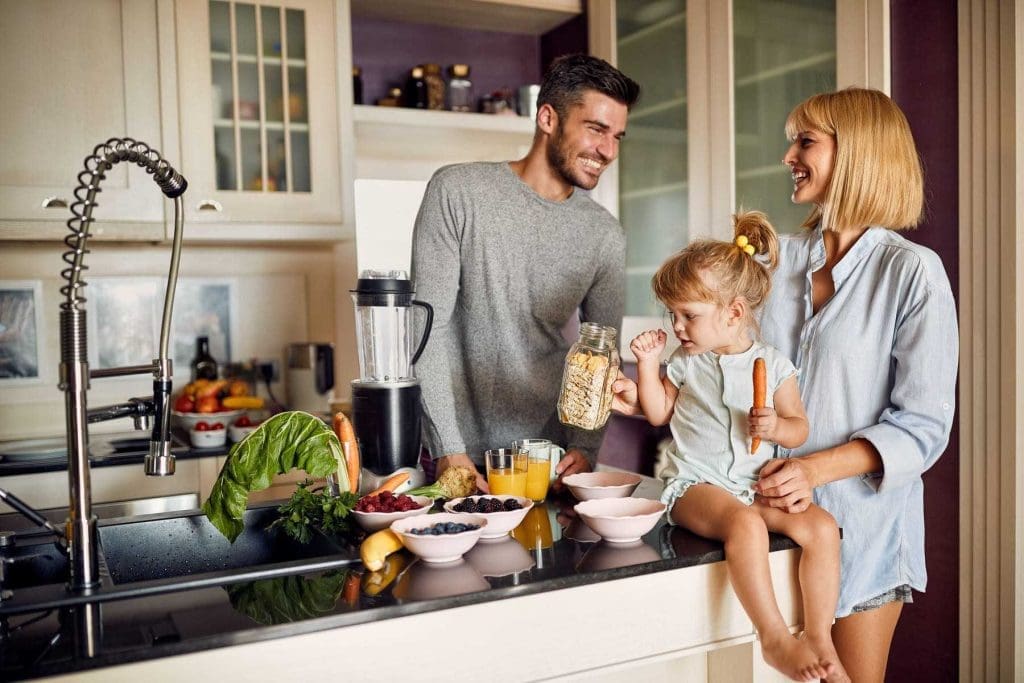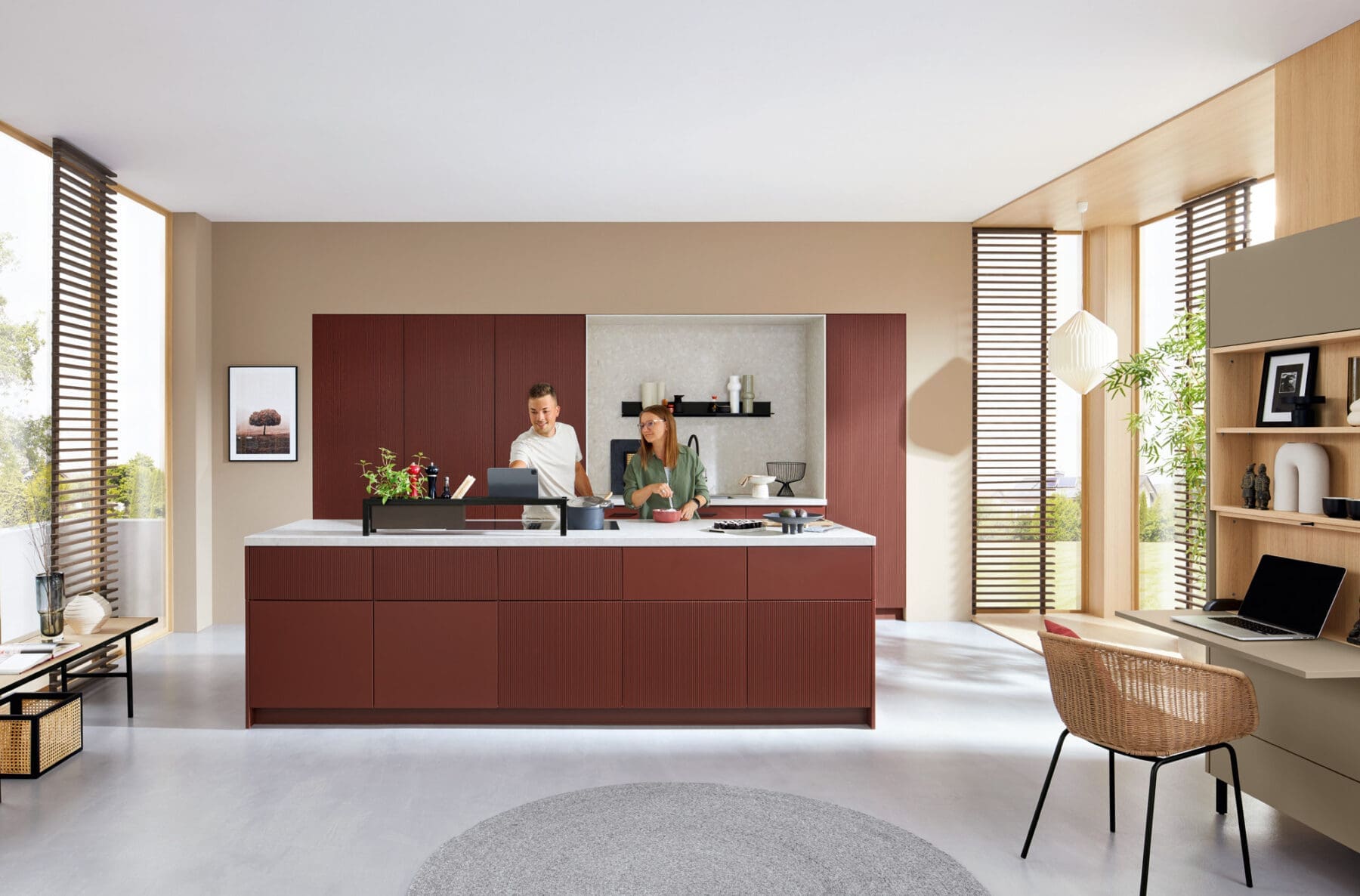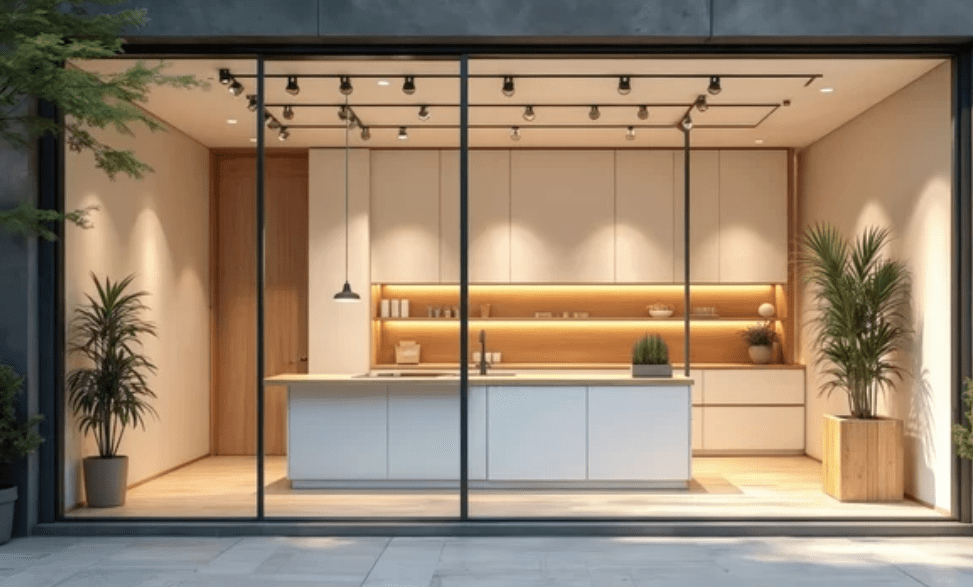10 Top Questions to Ask Your Kitchen Designer (and What They Wish You Knew Sooner!)
Planning a new kitchen can be one of the most exciting and rewarding home improvement projects you’ll undertake. But with that excitement comes a wave of decisions, layouts, finishes, and functional requirements that can quickly feel overwhelming. That’s where a skilled kitchen designer steps in. But while designers are there to guide you toward your ideal kitchen, the most successful projects often begin when clients come to that first consultation with a few clear ideas, key questions, and an open mind.
Here, the Kitchen Experts will explore the most important questions to ask your kitchen designer. More importantly, we’ll shed light on what designers wish you understood before your project begins—things that will save you time, money, and ensure your finished kitchen performs beautifully for years to come.
1. What is the best layout for how I live and cook?
Your lifestyle should drive your kitchen layout—not the other way around. Whether you love to cook elaborate meals or prefer quick dinners and open space for entertaining, your designer needs to know how you use the kitchen day to day.
What your kitchen designer wishes you knew sooner: “Tell us how you use your kitchen, not just how you want it to look.” A beautiful space that doesn’t function for your lifestyle will quickly frustrate you. So avoid this but sharing specifics—how many people typically cook, whether kids do homework at the island, or if you frequently entertain. These details are gold dust for creating a practical and tailored kitchen layout.
Experienced kitchen designers will often recommend zoning as a modern alternative to the traditional kitchen triangle. Modular furniture from well-known brands like Nobilia and Pronorm support seamless zoning—splitting food prep, cooking, storage, and cleaning into efficient zones that work with your daily rhythm.
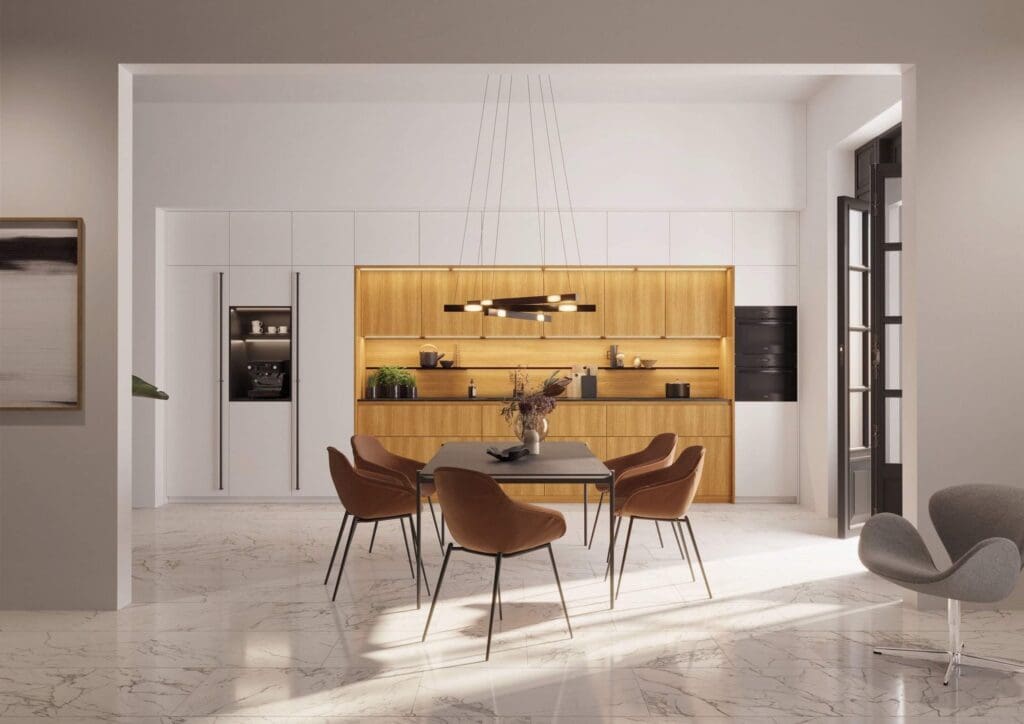
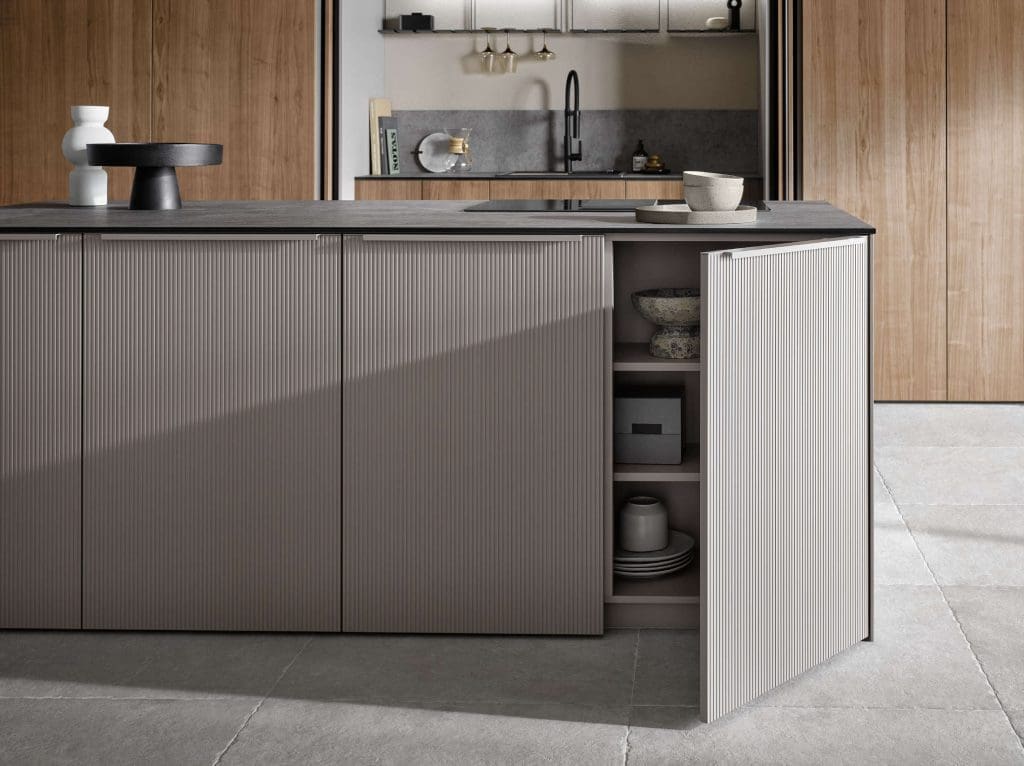
2. What kitchen storage solutions will help me stay organised?
This isn’t just about how many cupboards you need. It’s about how to store items efficiently for your lifestyle and needs. Hidden storage can dramatically reduce clutter so think about internal drawers, pull-out larders, spice racks, and integrated recycling bins.
What your designer wishes you knew sooner: “We can’t guess what you own—please tell us.” A kitchen that’s tidy by design is far more satisfying than one that constantly needs tidying so if you have oversized kitchen appliances, an extensive spice collection, or you bulk-buy groceries, bring it up early. Brands like Rotpunkt and Bauformat offer deep drawers, smart corner solutions, and clever internal storage systems that keep even compact kitchens tidy.
3. How long will the full process take from design to installation?
Timelines vary depending on the complexity of the design, customisation level, and installation needs. If you’re coordinating with other trades—electricians, plumbers, or flooring specialists—it becomes even more important to understand the full schedule.
What your designer wishes you knew sooner: “We’re not just designing a kitchen, we’re managing a small construction project.” Quality takes time so if you’re aiming to have your kitchen ready by a specific date—such as a family event or holiday—say so early. This is especially important as German kitchen brands such as Brigitte or Next125 are made to order, and this means a longer lead time than off-the-shelf options. Planning ahead can save you the stress of rushed decisions and missed deadlines.
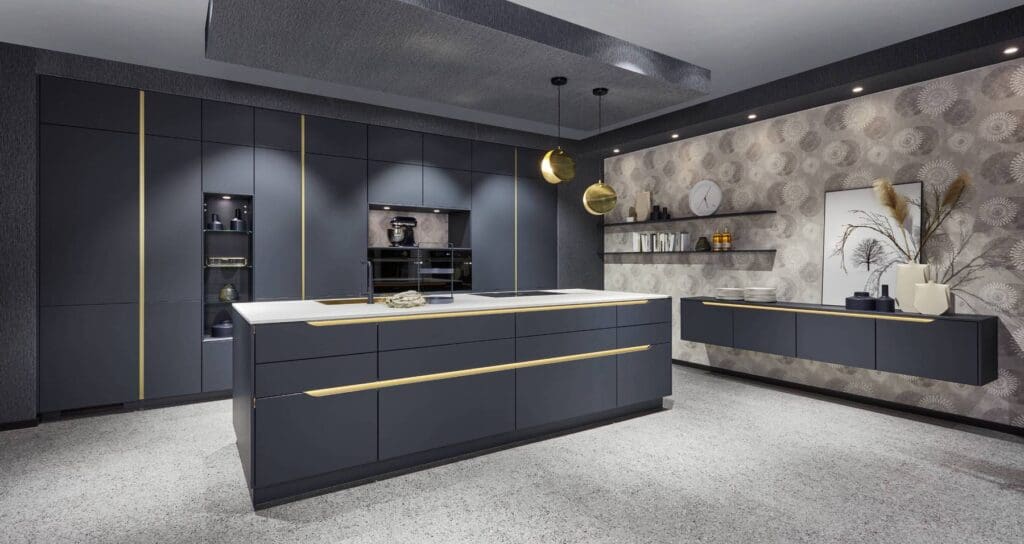
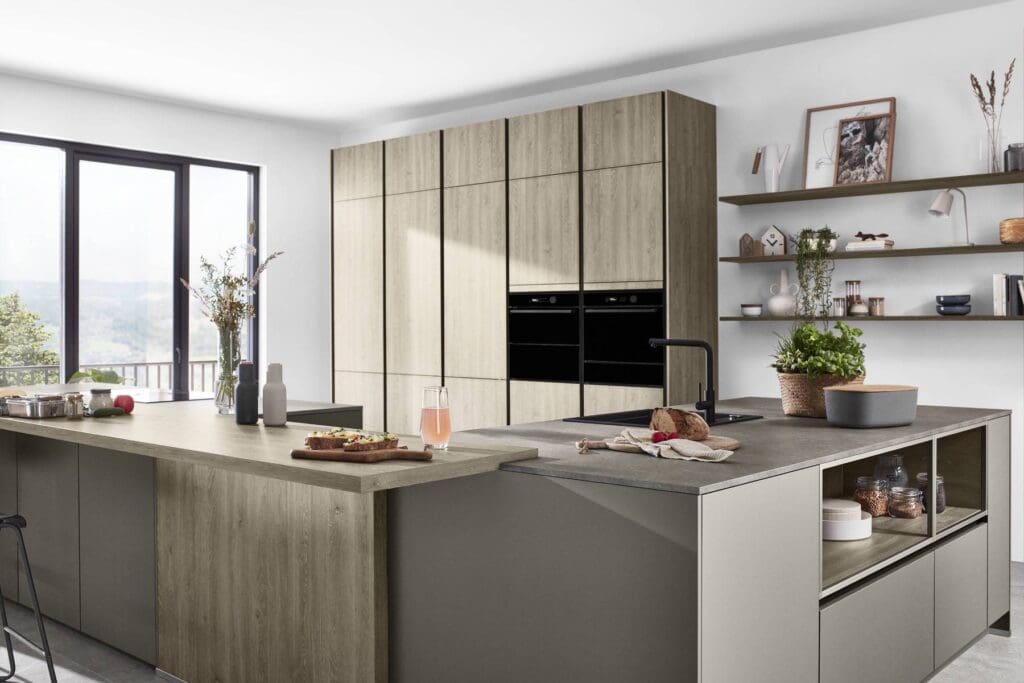
4. Can I see a 3D visual of the design before I commit?
Most kitchen designers now use sophisticated 3D planning software to bring your future kitchen to life. It helps you understand proportions, walkways, and whether the space feels right.
What your designer wishes you knew sooner: “Trust the planning stage. It’s not a formality—it’s essential.” Spend time reviewing layouts and visuals before signing anything. Take notes, ask questions, and don’t feel rushed. The more time invested upfront, the less risk of regrets later.
5. What appliances and fittings will suit my needs long-term?
Kitchen appliance technology has evolved rapidly. Integrated downdraft extractors, combination ovens, smart refrigeration, and hidden sockets can all make a kitchen more efficient. But not every option suits every household.
What your designer wishes you knew sooner: “Don’t choose appliances just because they’re trendy—choose what you’ll use.” If you rarely bake, a double oven is unnecessary. If you love fresh ingredients, a large fridge or fridge drawers might be more valuable than a wine cooler.
Understanding your needs and working with reliable brands like Siemens, Neff, or Fisher & Paykel, your designer can help match appliance functions to your cooking habits.
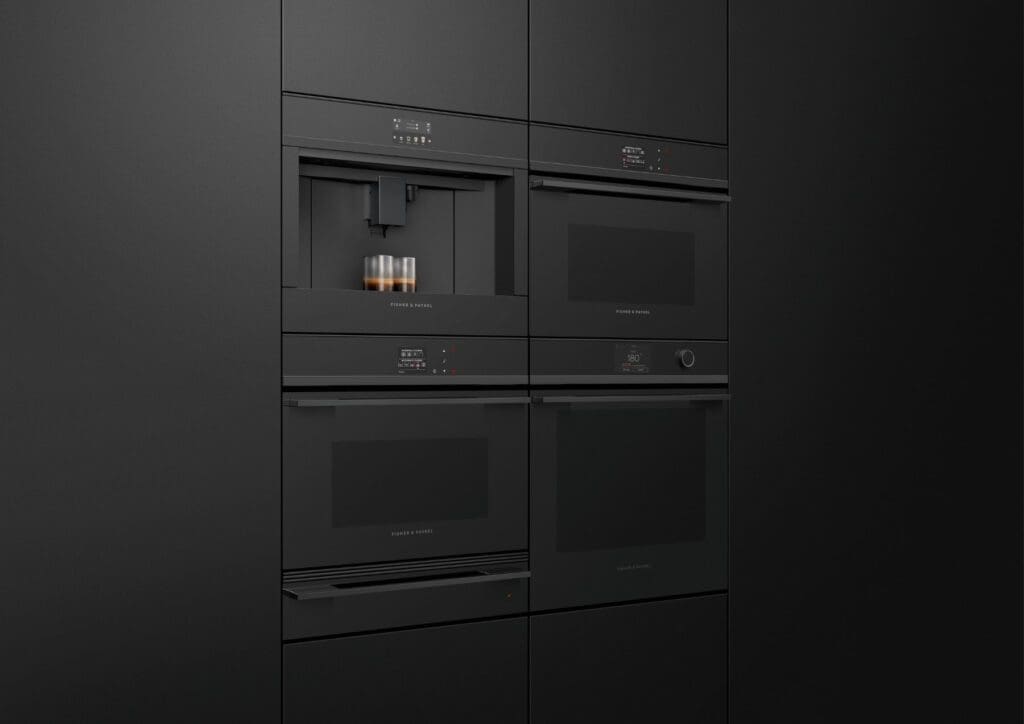
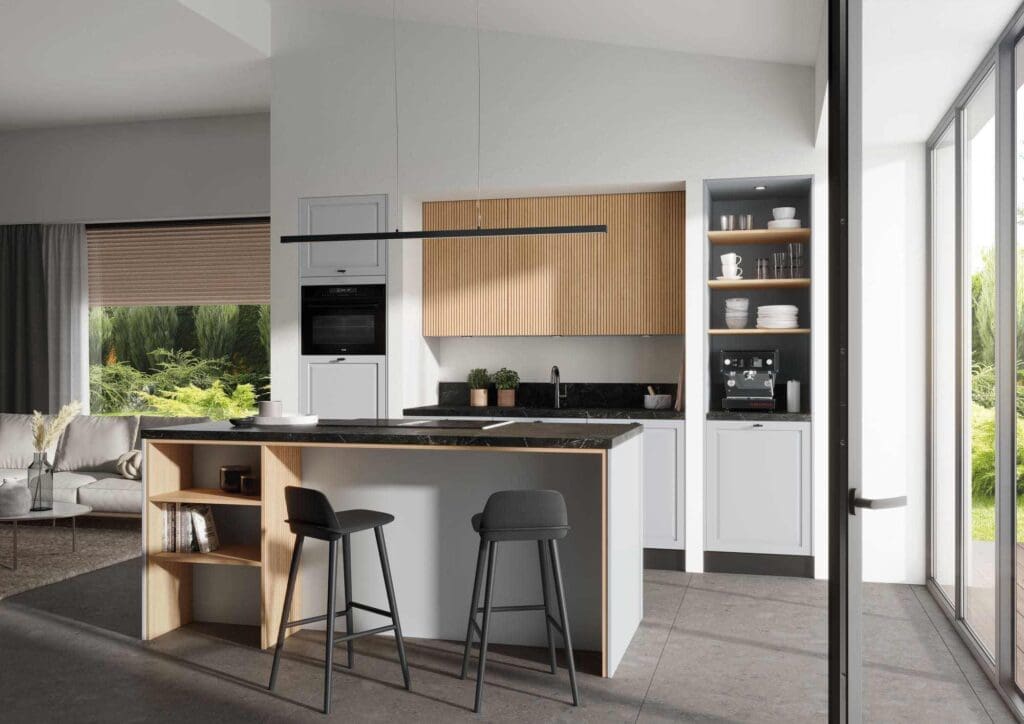
6. Will this kitchen still look good and function well in ten years?
Kitchen design isn’t just about today—it’s about longevity. That applies to finishes, layout, and even your colour palette. What your designer wishes you knew sooner: “Some styles date fast—let’s design with longevity in mind.”
Avoid overly fussy detailing or overly bold choices unless you’re happy to update again in a few years. Instead think, matt finishes, muted greys, warm woods, and textured laminates which offer a timeless, tactile quality that ages well. These materials also resist scratches and smudges so are ideal for modern and busy households.
7. How much will this cost, and where can I save without compromise?
A skilled designer knows where it’s worth spending—and where it’s safe to save. They can help you avoid mistakes like investing in luxury doors but cutting corners on poor-quality hinges or budget worktops.
What your designer wishes you knew sooner: “Let’s talk budget from the start—honestly.” Kitchen designers are not trying to push your spend; they’re trying to guide it, and transparency helps them prioritise the features and finishes that matter most to you. Brands like Nobilia offer a strong balance between quality and price. Paired with quartz-effect laminate worktops or ceramic alternatives, you can achieve a high-end look without exceeding your budget.
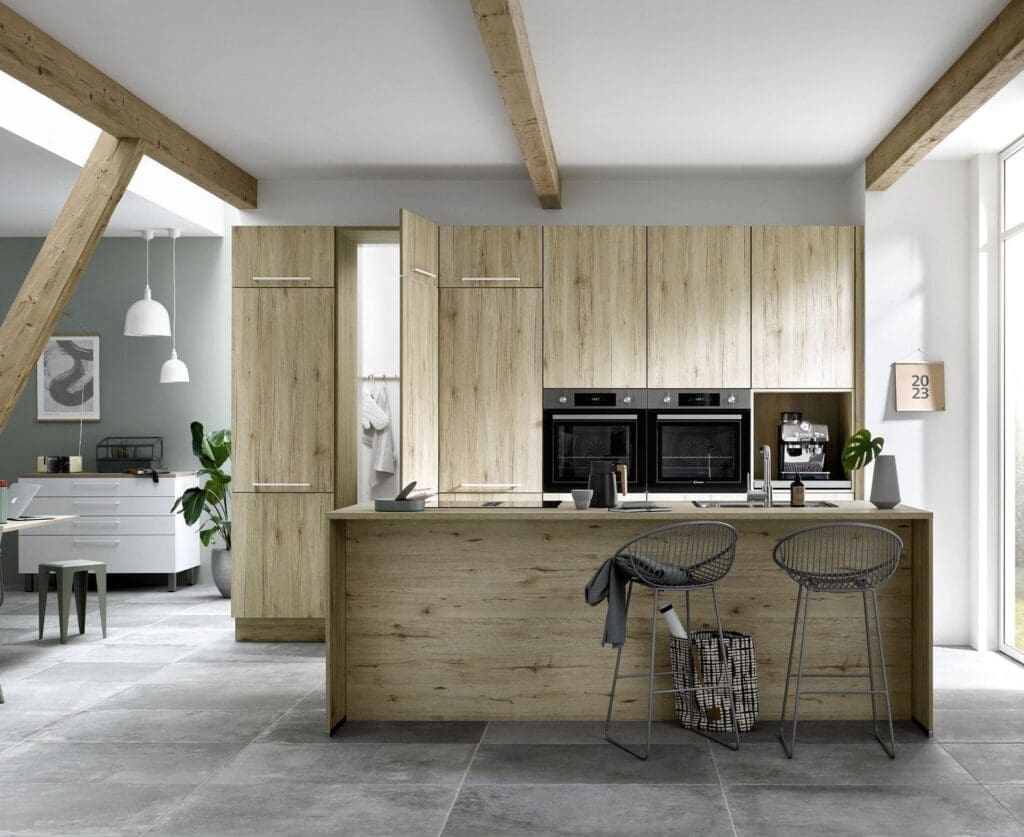
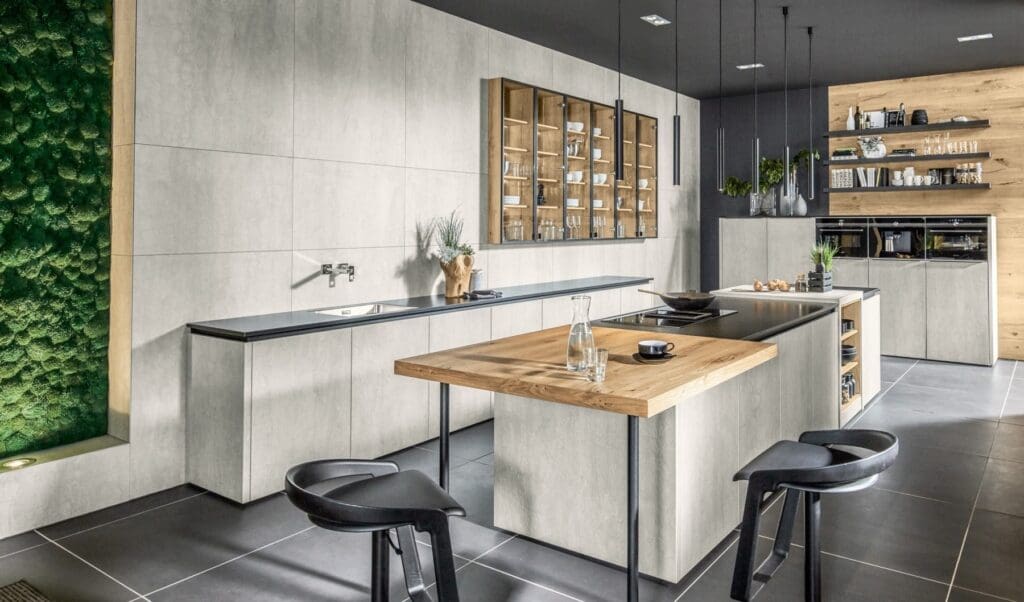
8. Can you work around awkward spaces or existing features?
Odd corners, bulkheads, low ceilings, or quirky architectural features don’t have to be a design headache. In fact, they can inspire creativity and many German kitchen brands like Pronorm and Bauformat offer fully bespoke or semi-bespoke sizing, making it easier to design around irregular shapes without waste or awkward gaps.
What your designer wishes you knew sooner: “We can work with almost anything—but only if we know about it upfront.” Bring measurements, photos, and videos if you’re not ready for a survey and flag up known issues—like where the boiler lives or how the door opens into the kitchen.
9. What kitchen lighting plan do you suggest?
Poor lighting can ruin the mood in even the most stunning kitchens and yet kitchen lighting is all too often overlooked until it’s too late. Lighting has a huge impact on atmosphere, safety, and how you use the kitchen at different times of day. What your designer wishes you knew sooner: “Lighting isn’t just about pendants—it’s layered.”
A proper lighting plan includes ambient lighting (overall light), task lighting (under cabinets), and accent lighting (for mood). LED strip lighting, recessed ceiling spots, and plinth lights are all worth discussing in the design phase.
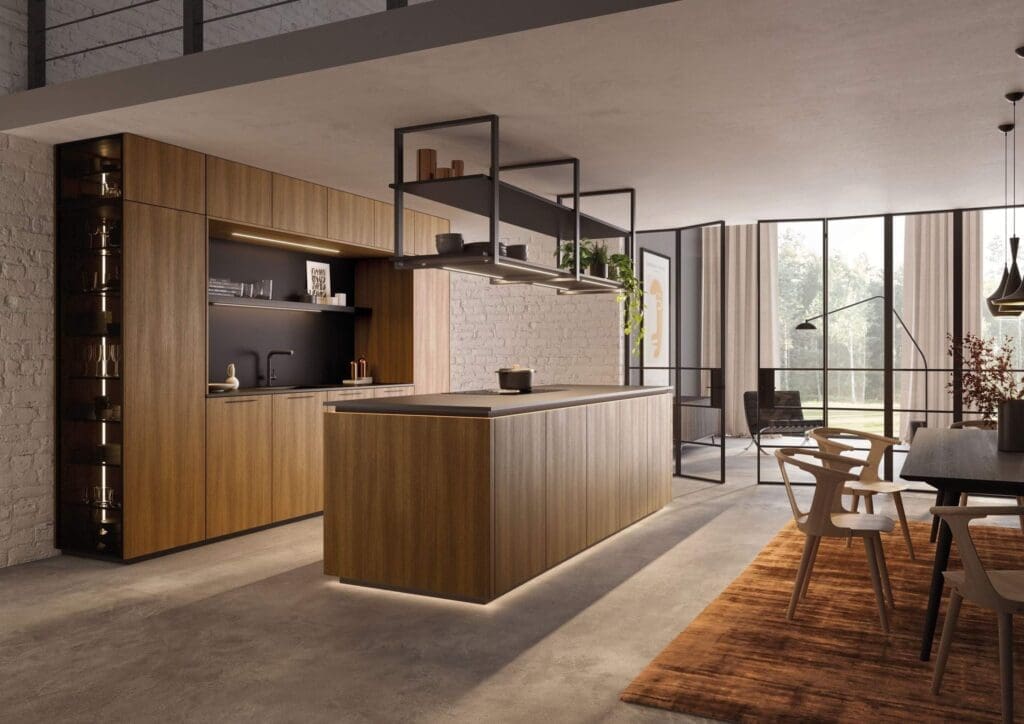

10. What do I need to choose now, and what can wait?
It’s easy to assume you can finalise all the details later. In reality, many choices—like sink placement, power points, and even where your bin goes—need to be confirmed early on in the design process. What your designer wishes you knew sooner: “The more decisions we can lock in early, the smoother the process.” Procrastination can lead to last-minute compromises. Your designer will guide you, but the more prepared you are, the better your end result will be.
A simple tip: create a priority list with must-haves, nice-to-haves, and things you can live without.
Final Thoughts: Help Us Help You!
Your kitchen designer doesn’t just want to sell you a kitchen. They want to create a space that works, flows, and feels good to live in—day in, day out for a long time to come. When you come to the table with clarity, openness, and the right questions, the process becomes more collaborative and less stressful.
By understanding what your designer really needs from you—and what they wish you already knew—you’ll avoid costly errors, speed up your project, and end up with a kitchen you’ll love living in. So when your next kitchen design consultation comes around, don’t hold back and remember the top 10 questions to ask your kitchen designer! …Ask the questions that matter, and give your designer the insight they need to deliver something exceptional for you.
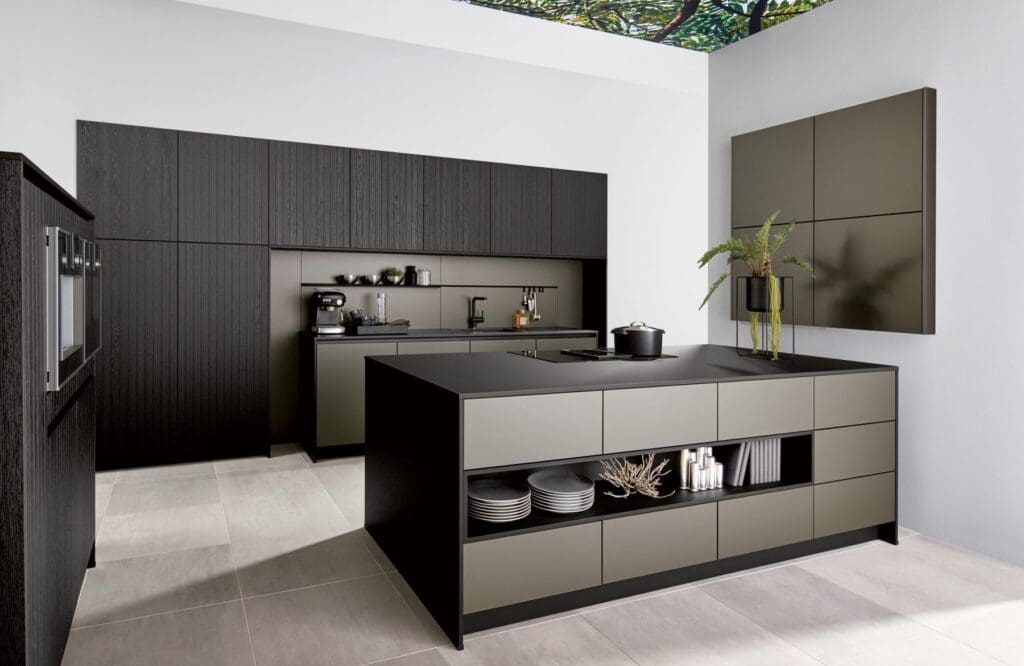
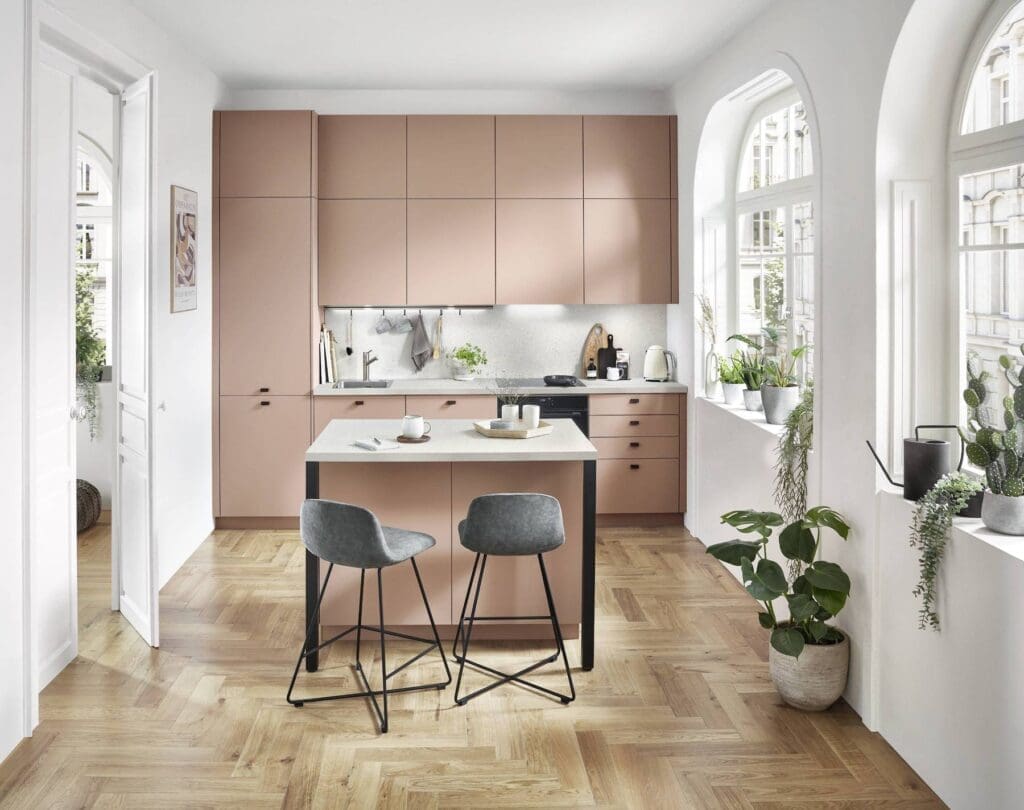
Ready to get started?
Make a note of these top questions to ask your kitchen designer, review how you live and cook, and bring as much detail as you can to your first consultation. Your designer will be more than happy to show you how their solutions can shape a kitchen that’s not only stunning—but truly future-ready.
Download a Brochure

